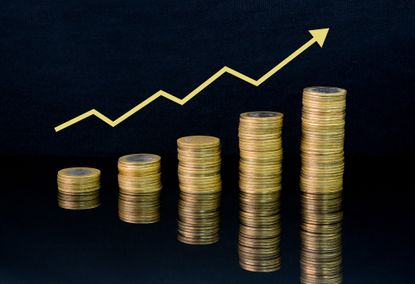Are you in line for the cost of living payments in 2022 and 2023? Everything you need to know
Millions of households have had some support and there’s more to come with payments in the bank and credit on energy bills – but knowing when and how you’ll get your money can be tricky.


Cash strapped households are in line for payments of up to £1,500 as part of the government's £15 billion cost of living package - announced in May and in the Autumn Statement.
But working out exactly how much you are likely to get isn’t easy as you might be due one or more payments depending on your financial situation.
These cost of living payments are intended to help households struggling with rising inflation, food bills and energy costs but it can cause problems for families trying to balance their budgets because there is no one single date payments will be made.
Head of personal finance at AJ Bell Laura Suter says, “With some people entitled to various different parts of the Government support package, and with it being paid at different times and in different ways many people will be scratching their heads trying to work out when they will get the money they are owed”.
Here’s what you need to know about whether you’re due any of the cost of living payments and when you’ll get your money.
What are the cost of living payments and who is eligible?
The previous Chancellor Rishi Sunak announced a package of ‘cost of living’ payments which included extra financial help for those on low incomes, pensioners and disabled people, as well as a flat one off energy bill rebate for all households with a domestic energy supply.
The five cost of living payments:
- A £650 cost of living payment. This is being paid to around 8 million low income households who claim means tested benefits or tax credits including Universal Credit and Pension Credit. The £650 payment is split into two instalments of £326 and £324 – the first of which was paid during July and the second payment is expected during the Autumn.
- An additional £900 cost of living payment in 2023 for low income households has been announced, but information on when and how it will be paid is still to be announced.
- Around 8 million pensioner households stand to get an extra £300 payment. This will be paid to those who get the Winter Fuel Allowance and made as an additional one off payment.
- Another £300 pensioner's payment will also be made in 2023, the government has announced, but no further details have been given on when and how.
- £150 Disability payment – this is being made to around six million people who claim certain disability benefits including Disability Living Allowance and Attendance Allowance.
- Households in England, Scotland and Wales with a domestic electricity account are due to get a £400 energy bill discount from October. This is being paid regardless of your income and in instalments of £66 - £67 a month until March 2023.
- You can expect the same £150 Disability payment in 2023 the government has said. They are yet to disclose dates and how this will be paid.
- Households with oil heating received £100 this year and are to get £200 in 2023 with details to follow from the government on further details.
- There is also a £150 council tax rebate for households living in properties with a council tax banding of A – D. This is being paid regardless of your household income as eligibility depends on your council tax band. Local councils have until 30 September to make these payments.
How much will I get and when will I get it?
How much you will get depends on which payment, or payments you are due.
Look After My Bills Newsletter
Get the best money-saving tips, tricks and deals sent straight to your inbox every week. Make sense of your money in partnership with The Money Edit.
The cost of living payment is £650 and is being split into two payments.
According to the Government website - to get the first Cost of Living Payment of £326, “you must have been entitled to a payment (or later found to be entitled to a payment) of Universal Credit for an assessment period that ended in the period 26 April 2022 to 25 May 2022”.
Over seven million payments worth over £2 billion have already been made with those eligible due to receive their first instalment of £326 during July. This will be followed by a second payment in the Autumn – however the Government has not yet announced a date for this.
If you think you were due to get the first £326 payment but not yet received it you should report this via the Government website.
And you can expect a further £900 in 2023, with more details to follow from the government.
Pensioners claiming the Winter Fuel Payment should get the extra £300 from November. There is no need to apply for this as payment should be made automatically to your bank account.
The same payment for pensioner households will be available in 2023. No dates have been confirmed yet.
The disability payment is worth a flat £150 and is being automatically paid to those eligible from 20 September.
This one off tax free payment should be paid directly to you in the same way your benefits are paid.
The Government says the vast majority of people should receive payment by the beginning of October.
Another £150 disability payment can be expected in 2023, with details to follow.
The Council Tax rebate is a fixed £150 that should be paid directly to your bank account or if you don’t pay by direct debit – your local council will be in touch to arrange another payment method. While the majority of households have already received this money – councils have until 30 September to make payments. And for households receiving payments from council discretionary funds – councils have until 30 November to arrange this.
Under the £400 energy bill rebate scheme – around 28 million households across the UK will see their electricity bill reduced by £400 from October. Unlike the original £200 version that was first announced, you don’t have to repay the £400 payment - so it’s free cash.
Payments are being made in instalments starting with £66 in October and November and £67 a month during December, January, February and March. Depending on the way you pay your bills, your supplier may pay this money straight into your bank account or reduce your monthly direct debit instead. According to MoneySavingExpert – suppliers including British Gas and EDF will credit your bank account with the money if you’re a direct debit customer – whereas Octopus will reduce your direct debit payments.
Note, this £400 energy discount will only be paid up until March 2023 and no energy discounts have been announced after that.
While not part of the original cost of living package – the Government has since announced the energy price guarantee. This caps the maximum price suppliers can charge per unit of energy and comes in from 1 October – replacing the energy price cap until April 2023.
Based on typical household energy usage this could mean households will see annual energy bills of £2,500 – compared to the expected levels of £3,549 under the new energy price cap that was due to take effect from October.
After April 2023, the government will continue the EPG for another year until April 2024 and the EPG will rise to £3,000. According to Cornwall Insights energy price predictions from April 2023, households could have been paying £3,700. So this £3,000 EPG gives households some security.
But with a £500 increase and no energy discount like the £400 rebate, households can expect to pay around an extra £900- depending on how much energy they use.
WATCH OUT FOR SCAMMERS
“If you’re not sure when you’ll be paid or think you have missed a payment you were due, check the Government website or speak to a reputable support service, such as Citizens Advice”, says Laura Suter.
Be on your guard for scammers as there have been a spate of fraudsters contacting households claiming they need bank details in order to pay the Government’s £400 energy grant.
“Be very wary when searching online for information as scammers are rife, trying to prey on those wanting to claim their support. You should also ignore any text messages or emails you get out of the blue”.
The cost of living crisis has also set off other fraudsters to scam. Keep on eye on the popular cost of living scams too.

Sue Hayward is a personal finance and consumer journalist, broadcaster and author who regularly chats on TV and Radio on ways to get more power for your pound. Sue’s written for a wide range of publications including the Guardian, i Paper, Good Housekeeping, Lovemoney and My Weekly. Cats, cheese and travel are Sue’s passions away from her desk!
-
 Three energy firms pay £8m in switching compensation - has your provider paid out?
Three energy firms pay £8m in switching compensation - has your provider paid out?More than 100,000 customers have received compensation after changing providers, but is now a good time to switch energy suppliers?
By Tom Higgins Published
-
 Save £300 on your supermarket shop with cashback accounts
Save £300 on your supermarket shop with cashback accountsBanks, credit card companies and cashback sites are all offering cashback on your supermarket shop, but can you use them all to max out your savings?
By Vaishali Varu Published
-
 Save on petrol: how to save 5p off a litre of fuel at Morrisons
Save on petrol: how to save 5p off a litre of fuel at MorrisonsPetrol prices may have been falling since last summer but every penny counts at the pump. Here’s how to save 5p a litre at Morrisons for a limited time
By Sue Hayward Published
-
 Morrisons relaunches discount scheme with cheaper prices for loyal shoppers
Morrisons relaunches discount scheme with cheaper prices for loyal shoppersMorrisons is the latest supermarket to revamp prices and offers for its loyalty scheme members
By John Fitzsimons Published
-
 Coronation freebies and discounts: what’s up for grabs
Coronation freebies and discounts: what’s up for grabsFrom free railcards and holiday giveaways to discounts off food, we highlight the special offers launched to mark the coronation of King Charles III
By Ruth Emery Last updated
-
 8 ways to get interest-free money if you’re struggling
8 ways to get interest-free money if you’re strugglingHere are 8 clever ways to get interest-free income if you’re struggling with the rising cost of living
By Vaishali Varu Last updated
-
 Best birthday freebies and discounts
Best birthday freebies and discountsEnjoy your special day with these birthday discounts and freebies - we highlight 22 of the best offers
By Vaishali Varu Published
-
 Festival ticket scam warnings – how to protect yourself
Festival ticket scam warnings – how to protect yourselfConcert ticket scams have rocketed by more than 500% over the past year, while festival fraud has more than doubled. Here’s how to keep yourself safe ahead of the festival season.
By Tom Higgins Published
-
 Co-op Member Prices: Supermarket unveils discount scheme for loyal shoppers
Co-op Member Prices: Supermarket unveils discount scheme for loyal shoppersNew Co-op scheme means reduced prices for shoppers who join the co-operative. How much does it cost to join, and how does it compare to similar schemes run by Sainsbury’s and Tesco?
By John Fitzsimons Published
-
 Emergency alert test: what to expect and how to avoid being scammed
Emergency alert test: what to expect and how to avoid being scammedWe tell you everything you need to know about the UK’s first emergency alert test, which takes place this Sunday
By Vaishali Varu Published